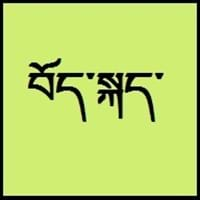Irish vs Tibetan
- In Irish language, there are no exact words for "yes" or "no".
- There are different set of numbers for counting humans and another set for counting non-humans in Irish Language.
- Tibetan dialects vary alot, so it's difficult for tibetans to understand each other if they are not from same area.
- Tibetan is tonal with six tones in all: short low, long low, high falling, low falling, short high, long high.
Irish and Tibetan Language History
Comparison of Irish vs Tibetan language history gives us differences between origin of Irish and Tibetan language. History of Irish language states that this language originated in c. 750 whereas history of Tibetan language states that this language originated in c. 650. Family of the language also forms a part of history of that language. More on language families of these languages can be found out on Irish and Tibetan Language History.
Irish and Tibetan Greetings
People around the world use different languages to interact with each other. Even if we cannot communicate fluently in any language, it will always be beneficial to know about some of the common greetings or phrases from that language. This is where Irish and Tibetan greetings helps you to understand basic phrases in Irish and Tibetan language. Irish word for "Hello" is Dia dhuit or Tibetan word for "Thank You" is ཐུགས་རྗེ་ཆེ་། (tujay-chay). Find more of such common Irish Greetings and Tibetan Greetings. These greetings will help you to be more confident when conversing with natives that speak these languages.
Irish vs Tibetan Difficulty
The Irish vs Tibetan difficulty level basically depends on the number of Irish Alphabets and Tibetan Alphabets. Also the number of vowels and consonants in the language plays an important role in deciding the difficulty level of that language. The important points to be considered when we compare Irish and Tibetan are the origin, speaking countries, language family, different greetings, speaking population of these languages. Want to know in Irish and Tibetan, which language is harder to learn? Time required to learn Irish is 36 weeks while to learn Tibetan time required is 24 weeks.





